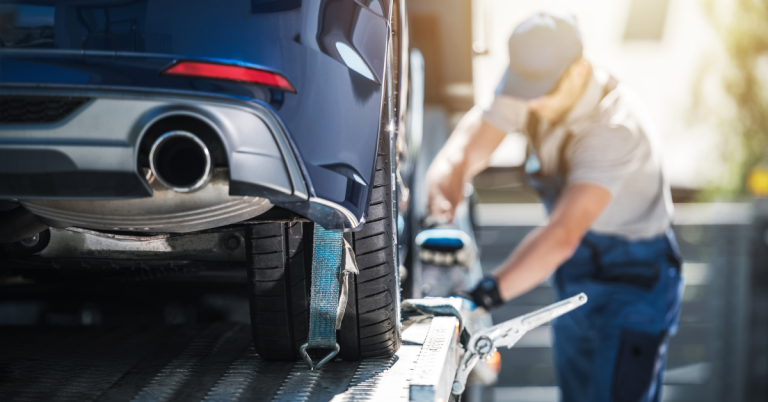Asphalt vs. Concrete for Parking Lot Paving in Orlando: Pros & Cons
Choosing the right material for parking lot paving is an important decision for property owners in Orlando. Asphalt and concrete are the two most common options, each with its own advantages and drawbacks. Factors such as climate, cost, durability, and maintenance play a significant role in determining which material is best suited for a particular project.
When considering Parking Lot Paving in Orlando, property owners should evaluate the benefits and limitations of both asphalt and concrete. The right choice depends on budget, expected traffic levels, and long-term maintenance requirements. This article provides a detailed comparison of asphalt and concrete for parking lots, helping business owners and property managers make an informed decision.
Pros & Cons of Asphalt Parking Lots
Pros of Asphalt
1. Lower Initial Cost
Asphalt is typically more affordable than concrete, making it a cost-effective option for large parking areas. The lower upfront cost allows property owners to allocate funds for other improvements.
2. Faster Installation
Asphalt paving is quicker to install compared to concrete. Depending on the project size, an asphalt parking lot can be ready for use within a few days, whereas concrete requires a longer curing time.
3. Flexibility and Durability
Orlando’s warm climate can cause concrete to crack due to temperature fluctuations. Asphalt is more flexible, allowing it to expand and contract without sustaining significant damage. This flexibility helps prevent major cracking issues.
4. Easier Repairs and Maintenance
Asphalt surfaces can be resurfaced or patched with minimal disruption. Regular sealcoating extends the lifespan of an asphalt parking lot, making it a cost-effective option for long-term maintenance.
5. Better Performance in Cold Weather
Although Orlando experiences a warm climate, occasional cold snaps can affect pavement performance. Asphalt handles cold temperatures better than concrete, as it does not suffer from frost heaving or severe cracking.
Cons of Asphalt
1. Requires Regular Maintenance
To extend its lifespan, asphalt needs periodic sealcoating and crack repairs. Without proper maintenance, the surface can deteriorate faster.
2. Shorter Lifespan Compared to Concrete
While asphalt can last 15–30 years with proper care, it has a shorter lifespan compared to concrete, which can last up to 50 years.
3. Can Become Soft in Extreme Heat
Asphalt absorbs more heat than concrete, making it susceptible to softening and minor surface deformation in Orlando’s high temperatures.
Pros & Cons of Concrete Parking Lots
Pros of Concrete
1. Longer Lifespan
Concrete is known for its durability, often lasting 30–50 years with minimal maintenance. This longevity makes it a worthwhile investment for property owners looking for a long-term paving solution.
2. Minimal Maintenance Requirements
Unlike asphalt, concrete does not require frequent sealcoating or resurfacing. Routine cleaning and occasional crack filling are usually enough to maintain its condition.
3. Higher Load-Bearing Capacity
Concrete is more resistant to heavy loads, making it an ideal choice for parking lots with frequent truck or industrial vehicle traffic.
4. Reflects Heat Better
Concrete remains cooler than asphalt in direct sunlight due to its lighter color, reducing the heat absorbed by the surface. This can help create a more comfortable environment for pedestrians and vehicles.
5. Resistant to Oil and Chemical Spills
Concrete does not degrade as quickly when exposed to oil, gasoline, and other chemicals, making it a better choice for high-traffic commercial areas.
Cons of Concrete
1. Higher Initial Cost
The biggest drawback of concrete is its cost. Installation costs are significantly higher than asphalt, making it less budget-friendly for large parking areas.
2. Longer Installation and Curing Time
Concrete takes longer to install and requires a curing period before it can handle vehicle traffic. This delay can be inconvenient for businesses that need immediate access to parking areas.
3. Prone to Cracking in Certain Conditions
Although concrete is durable, it is more likely to develop cracks due to temperature changes and ground movement. Expansion joints are required to minimize cracking, but they do not eliminate the risk completely.
4. More Difficult and Expensive to Repair
Unlike asphalt, concrete repairs can be costly and time-consuming. Cracks and surface damage often require section replacements, increasing overall maintenance expenses.
Factors to Consider When Choosing Between Asphalt and Concrete
1. Climate
Orlando’s warm and humid climate can affect both materials differently. Asphalt may soften in high heat, while concrete is prone to cracking if not properly installed. Property owners should work with experienced contractors to ensure proper material selection based on environmental conditions.
2. Budget and Long-Term Costs
While asphalt has a lower initial cost, it requires more frequent maintenance. Concrete costs more upfront but lasts longer with minimal upkeep. Evaluating long-term expenses is important when making a decision.
3. Traffic and Usage
For high-traffic parking lots, concrete is often the preferred choice due to its durability and ability to withstand heavy loads. However, for smaller commercial properties and light vehicle traffic, asphalt may be the more economical option.
4. Maintenance Requirements
If property owners prefer a low-maintenance option, concrete is the better choice. Those who are willing to invest in regular sealcoating and minor repairs may find asphalt more cost-effective in the short term.
Conclusion
Both asphalt and concrete have advantages and drawbacks when it comes to parking lot paving in Orlando. Asphalt offers affordability, flexibility, and faster installation, making it a great option for those needing a budget-friendly solution. Concrete, on the other hand, provides long-term durability, lower maintenance needs, and a higher load-bearing capacity.
Property owners should consider factors such as climate, budget, expected traffic levels, and maintenance preferences before making a decision. Consulting with an experienced paving contractor can help ensure the best material choice for a durable and functional parking lot.







